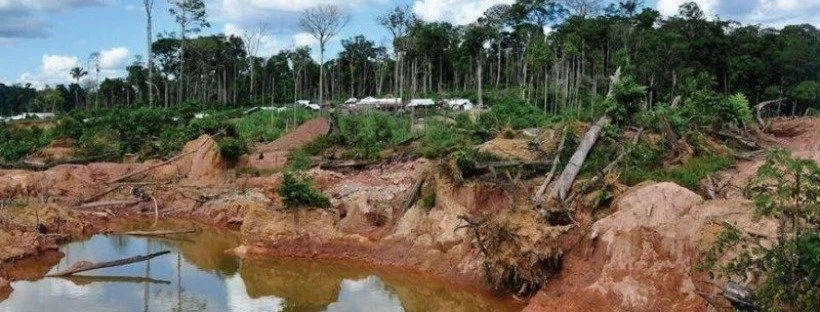The Impacts of Deforestation in the Amazon
By: Victoria Hristova
The Amazon is home to animals, plants, and 20 million people. To help protect it all, the Brazilian government made a commitment to put a stop to illegal deforestation by 2030 as a part of the Paris Climate Agreement. However, while the goal was to have at most 3,925 square kilometers of trees cut down in 2020, by July, 4,700 square kilometers were already gone. From August 2019 to July 2020, deforestation reached a 12 year high with 11,088 square kilometers. In addition, with deforestation, also come fires. The fires are induced during the dry season in order to clear the land for agriculture. They also induce the worsening of the standard of living to those living in the area and greenhouse gas contributions.
Rainforests act as the Earth’s air purifier: taking in carbon dioxide and releasing oxygen. However, deforestation leads to the release of years of the trees’ trapped carbon and their disappearance weakens the air purifier’s performance. When combined with the fires afterwards, the clearing of the Amazon, notably the illegal and uncontrolled aspect, largely contributes to climate change.
In addition to their climate change contribution, fires produce air pollution. Especially with the current pandemic times, the respiratory problems caused by air pollution harm people’s health. Of these same people, many are indigenous and during the dry season, one gust of wind can devastate their land. President Bolsonaro of Brazil has stated that he does not want to designate any more land as Indigenous territory and his main step taking towards decreasing illegal deforestation has been deploying troops. However, the current government response has not fixed the driving force of deforestation: criminal networks. Overall, people living in the Amazon’s rights to health and a healthy environment are not being protected.
While those living in the area are the hardest hit, deforestation impacts the entire world. The opposite is true as well. Deforestation is driven by profits from growing commodities such as palm oil, beef, leather, soy, and cocoa. The great demand for these items leads to a need for supply. Criminal networks take advantage of their ability to illegal clear Amazonian land to turn a profit.
As Greta Thunberg said: “All we have to do is to wake up and change.” Note the use of we, because to make a difference the world must work together.
Sources:
